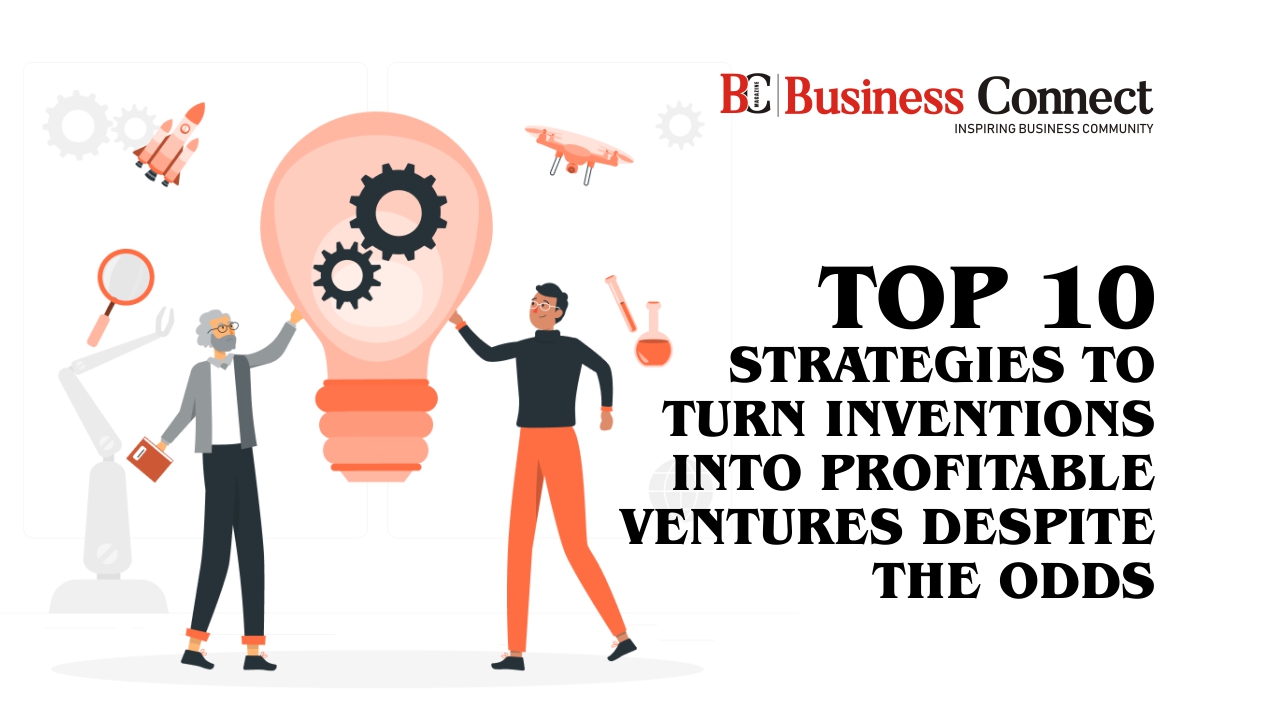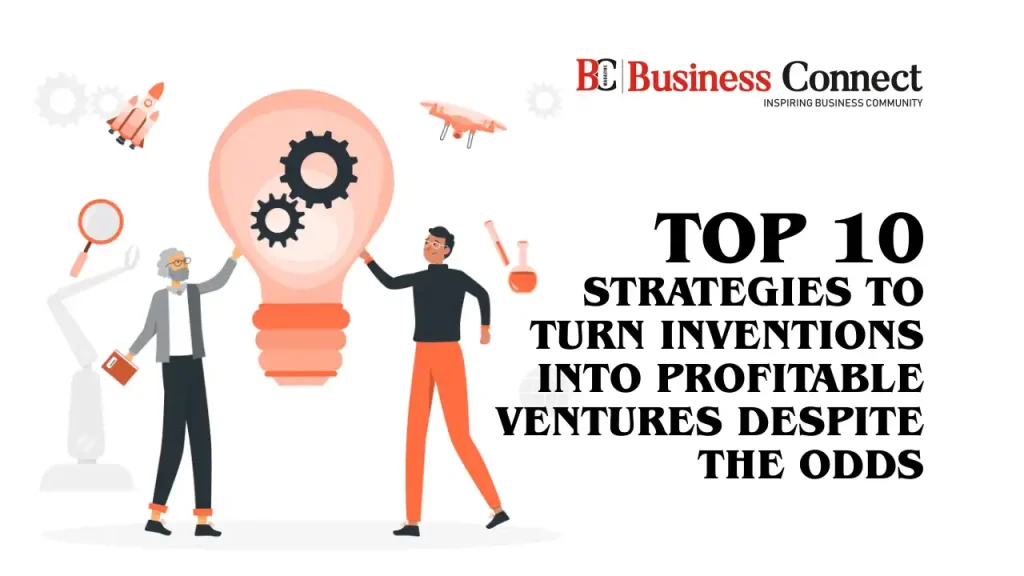Top 10 Strategies to Turn Inventions into Profitable Ventures Despite the Odds
Do you have an invention worth a million dollars? If you are willing to use it to begin a profitable business, it might even be worth much more. Unfortunately, a lot of the inventors are stuck at this point; they are excellent technologists but not so-great business owners or entrepreneurs. Their creations remain stagnant and never earn them a single rupee.
Any successful business begins with an innovation or an idea. However, not every innovation becomes a successful business since it takes work to develop an idea into an invention and then transform that creation into a successful venture. Some inventors never operate a profitable business or make money from their inventions, and they spend their entire lives patenting innovation after invention.
Sometimes, creating a business is easier than coming up with a new idea or even a solution to a challenging problem. This article is crafted to educate you on how to turn inventions into profitable businesses.
If you consider yourself the ultimate inventor but haven’t yet succeeded in the business world, you can think about the following 10 strategies to turn inventions into profitable ventures for sustained success that successful inventors have used before you:

01. Begin with an idea.
The concept that will start this whole process will have the potential to become a profitable product or business, or perhaps a valuable invention. You know better than anyone that being an inventor makes this far easier said than done.
However, this is the cruel reality. Take care of this before working on your business plan, as you won’t have a solid foundation to build your company upon without a decent idea or invention.
02. Accept failure and prepare yourself.
A significant aspect of both business and invention is failure. Not all inventions will prove beneficial; some will simply gather dust in a box hidden away in the attic.
This also holds for business. You will inevitably experience several setbacks before producing a prosperous venture. You’ll be able to launch a business sooner if you accept this.
03. Get Your Idea Invention Ready for a Patent
The easiest step for you will be coming up with an innovation. Still, it is insufficient to merely invent something. If you wish to be granted a patent, you will need to record every stage of the process.
It is a must if you want to launch a firm and get your patent granted. It will be among the most crucial actions you take to develop a company and safeguard your rights to intellectual property. You run the risk of someone else stealing your idea without a patent.
Therefore, you should record everything about your innovation, starting from the moment you had an idea and ending when you put it into practice. All of those documents will come in handy in the not-too-distant future.
04. Make a functional prototype of your idea.
You will require a prototype for your invention. This will enable you to potentially present your idea to potential investors, but to profit from your creation, you must produce what you have produced. You’ll be about halfway there once you’ve completed this.
05. Submit a patent application.
After the invention process is complete, you will waltz (figuratively) over to the USPTO and submit a patent application. This procedure will safeguard your intellectual property and keep you from becoming as famous as the men who created Google Earth.
It’s possible that you could earn some money without a patent, but the likelihood of starting a significant, successful company without one is extremely low.
06. Build a business plan.
You should start working on your company plan of action, or at least have an idea of what you want to do with it, while you’re waiting on a patent. You’ll want to start looking for investors as soon as you acquire your patent, and if you don’t have a good plan in place, you are unlikely to earn any money.
07. Obtain capital for your new company.
As soon as you receive a patent, you should begin approaching possible investors with your invention. By “market,” we mean going out there and making a proposal to the more financially secure men about your business idea. Don’t worry if you’re afraid of public speaking or if you don’t know how to sell or pitch your idea. It can be completed by another person.
08. Set Up Your Venture
You must choose the type of entity your new firm will be before you launch it. Sometimes, how you obtain the funds will have an impact on this choice, but if you choose FIIS BWFIRruib, you ought to be the one making it. You can choose between a corporation, LLC, partnership, or single proprietorship in any case.
Before registering your firm, we strongly suggest you talk with someone who is well-versed in the subject, as each of these solutions has pros and cons of its own. Make a smart choice because it will have a big impact on how your business develops.
It’s only a matter of setting up shop and completing some paperwork when you make your decision. By paperwork, we mean filing your business taxes and government registrations. You must persevere through the most tedious portion of the voyage. If you want to avoid future inconveniences or issues, everything must be configured precisely.
09. Collaborate with organizations that respect innovators.
Join the inventing community to help you distinguish between businesses that respect inventors’ efforts and those that don’t. On your path, your devoted peers will be a great source of support. They will also celebrate your victories.
This technique is effective because it lets you quickly test the waters and determine which of your ideas has the greatest potential. The fact that you’re investing so little in each product idea allows you to stay in the game longer.
Lastly, only follow the advice of successful innovators who have made recurrent profits from their ideas. Not once, not twice, but those who have truly succeeded in making a livelihood off of their inventions.
10. Get Insurance
Getting an insurance policy for the same business is the final step before starting your new venture. Although it may seem optional to you, this is required. Purchasing insurance coverage is one way to safeguard your company, so make sure you take that action before you launch.
Final Step: Make Money
Keep in mind that while developing technology is important, it won’t be enough to build you and your team into a multimillion-dollar company. After you have an idea, it’s important to use the same inventiveness and passion to either start a business with it yourself or sell it to someone who can handle the business end of things. The results of your hard work won’t start to trickle in until then.
After completing all of this and starting your new company, all that’s left to do is manage it effectively and generate revenue.



